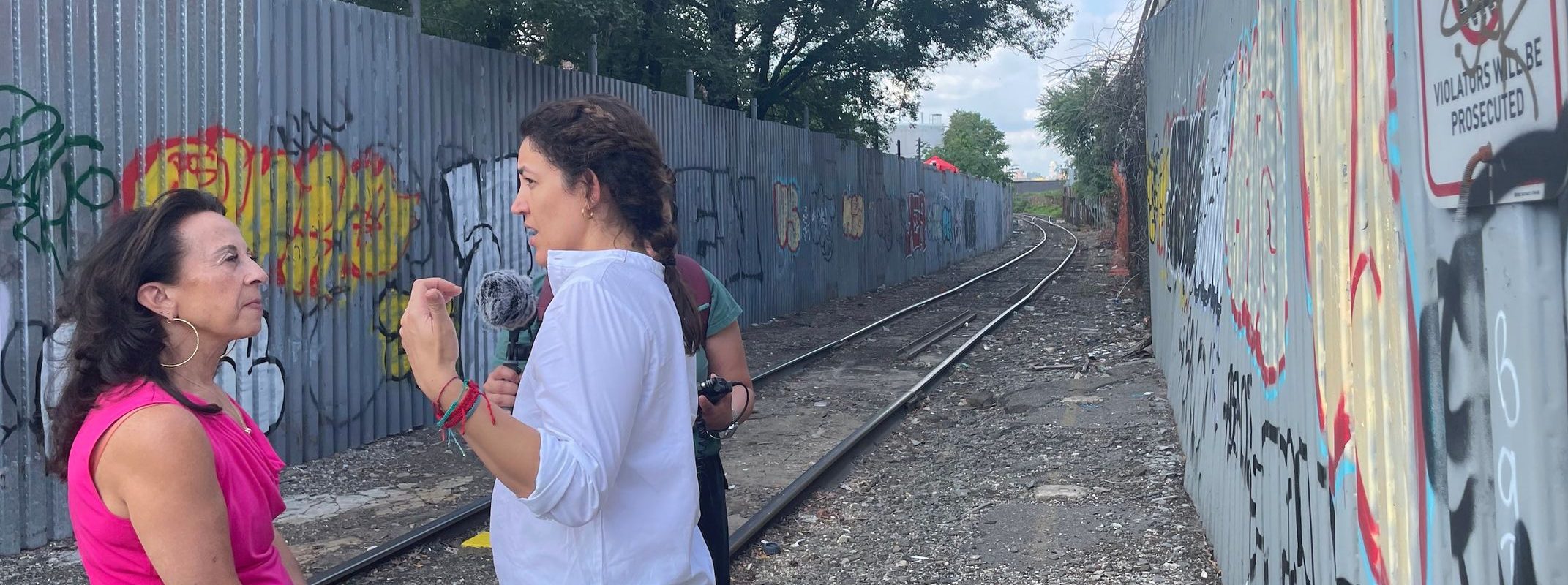
Opinion
I became obsessed with a fictional character; It turns out he is real
Maria Hinojosa became obsessed with a Mexican top level security boss, now indicted in New York City for helping “El Chapo.” She explores why she worked on “USA v. García Luna,” the latest Futuro Investigates’ podcast, and why she believes the case against Genaro García Luna should lead the U.S. to look inward, and face the failures of the “war on drugs.”
I wasn’t at all interested in covering the story of “El Chapo.” There were already enough journalists and editors who would continue to amplify the stereotype of a dangerous Mexican drug lord who rose up from nothing to be one of the richest men in the world.
I wasn’t interested.
But then I found myself in Latin America during the pandemic, and I ended up watching Spanish-language Netflix. There was a show called El Chapo. I was interested in seeing if Mexicans would portray his story as something multidimensional, and was surprised that they did. Based on real life people with changed names, there was an over-the-top character who was working all sides of the story. He was the right-hand man of the Mexican president, and he moved in the innermost circles of power. But he also made deals with “El Chapo.” And… he was also an informant for the DEA.
I researched and found out that the Mexican press connected this character in the TV series with a real life man named Genaro García Luna. He was indeed the head of all of the police, the intelligence, and the prisons, and, although he was not a lawyer, he was the main counsel on security issues for the Mexican president Felipe Calderón.
And, it turns out, García Luna was arrested in Texas in 2020, and he is now being held at the Brooklyn federal detention facility. He will be tried in the same court and with the same judge as “El Chapo” Guzmán, under charges of helping the drug lord to smuggle cocaine into the U.S.
The larger-than-life character on TV matches the true absurd details of how García Luna rose to power and remained an untouchable political player for over a decade. Yes, he was the top law-enforcement dude, but what was his obsession hiding in his basement? Disco music and Donna Summer, baby.
Also, he was a public servant, who somehow afforded a three-million dollar home in Miami. Oh, and he created a TV show that was the Mexican CSI—the original was another of his obsessions.
This is what drew me in: a story where true crime meets telenovela, about a stranger-than-fiction man and his rise to power.
What convinced me to do this podcast was when I hired Peniley Ramírez to lead my investigative unit and I learned that she, too, was obsessed with García Luna, had already written a book about him, and had been investigating him for an entire decade.
And then what brought it all home was how closely this all touched the U.S., the DEA, and the so-called “war on drugs.”
Because I don’t adhere to American exceptionalism.
And the Mexican telenovela about “El Chapo” did not paint the white man and the DEA as the heroes of the story, like Narcos did. Au contraire. It showed their true colors, and how corrupt the DEA itself could be, as one former agent told us for the podcast.
It was Nixon who started the “war on drugs,” but also his administration made the highest levels of corruption visible to everyone in the world.
Ramírez has been through the ringer with this story. The earthquake in Mexico City in 2017 happened seconds after she had sent an email to García Luna. Then her apartment collapsed.
Now Peniley Ramírez lives in NYC, just like me. Another Mexican here (she is Cuban Mexican). And guess who else lives in NYC, not by choice, but by force?
Genaro García Luna.
His lawyer has said that he is banking on the lack of name-recognition that García Luna has in this city. Well, I love exposing corruption at the highest ranks and challenging the holier-than-thou attitude of the U.S.
In the upcoming trial in January, the U.S. will bare all of the facts about high-level internal corruption in the Mexican government, and its ties to drug traffickers. In many ways, that’s an old story.
The new story, that I’m convinced that U.S. prosecutors won’t tell, is the one where the DEA is unmasked not as the savior, but as the perpetrator and benefactor of their own corruption.
Yes, I want you to also become obsessed with García Luna. And I want you to think about the infamous “war on drugs,” and the structural “good cop” problem that this country has.
It’s not just about pointing the finger outward. We have to look inward as well.
That’s how and why we do our investigative journalism.


